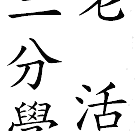Proverbs have a deep meaning and if we analyze them ,we can decipher their meaning . This proverb literally means that a small tear in a cloth or garment can be corrected or remedied if attended to in time . But if ignored this small tear may widen leading to more work or the garment may have to be discarded.
In this manner, this proverb warns us against neglecting small faults or imperfections which may lead to big troubles . Time waits for no one , so we should never put off till tomorrow something which can be done today . Opportunity knocks on our door but once and if we fail to open the door in time we will lose out on success .
We should remain ever vigilant for even a little neglect may spell great ruin . A small crack in a dam may lead to a breach in the dam and the flooding of the area around .
In the same way if a student neglects his or her studies , all the learning will have to be done on the day before the test or the exam and this will probably lead to bad results . The following verse emphasizes the importance of timely action -
For the want of a nail the shoe was lost ,
For the want of a nail the horse was lost ,
For the want of a horse the rider was lost,
For the want of a rider the battle was lost .
In our daily life we sometimes quarrel with our friends or relatives because of some small misunderstanding , if this small tiff is not cleared in time we may lose our friends or relatives
Bad habits too have small and insignificant beginnings . A puff of cigarette or a swig of beer may not seem serious to a teenager . But these small beginnings will give excitement or kick to him which he would like to repeat and these repetitions may give rise to craving for cigarette or beer . This verse by Julia.F.Carney stresses on the importance of small things -
Little drops of water ,
Little grains of sand ,
Make the mighty ocean ,
And the pleasant land .
But we should also know that doing things on time doesn't mean rushing with all our work . We should pay heed to sayings like 'Haste makes waste ', 'Hasty climbers have sudden falls' etc . Hasty people often mess up their work leading to them redoing the task and having more work in the long run.
This proverb advises us to realize the value of time and that small things make a big difference so we should do our work conscientiously and carefully and at the right time .






For want of a nail...
I think the verse actually goes:
For want of a nail a shoe was lost,
For want of a shoe a horse was lost,
For want of a horse a message was lost,
For want of a message a battle was lost,
For want of a battle a war was lost.
Which seems to focus on power of small details, rather than the importance of timely action. If you really want to use this verse in the essay, you should explain in more depth how this verse does what you describe, and the significance of that to the "stitch in time" proverb.
To not use one (or more) saying(s) to interprate another would also make the essay more effective. For example, is it necessary to include both "Time waits for no one" and "Opportunity knocks on our door" in the second paragraph?
Try to address at all times the question being asked, and explain directly how each statement links to answering it.
Mentioning the proverb in only the introduction and conlcusion is not enough. It should be the focus of the entire essay.
Try to back up every point you make with evidence. For example, you could talk about how proverbs evolve and become part the langauge, to create a deeper understanding of why "Proverbs have a deep meaning."
You have made some good points, but try to read over your work asking yourself how relevent each statement is, and try to avoid using too many cliches.
5 out of 6 people found this comment useful.